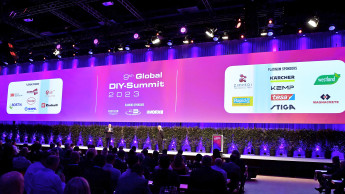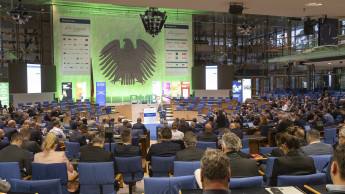The German trade magazine diy-Fachmagazin has dedicated its March issue entirely to the topic of women in the DIY industry. On this topic, the editorial team also received a statement from Jim Inglis, an expert with sixty years of experience in the home improvement retail industry; he served in executive positions with market leader Home Depot for thirteen years. He writes:
The Diversity Problem: The home improvement business is very much a male dominated industry. Why is this? Is it because a home improvement centre has construction products such as: lumber, millwork, plumbing supplies, electrical supplies, tools, and hardware? Could you not equally say that the home centre is a source for decorative and fashion oriented products such as kitchens & bathrooms, lighting, décor, window treatments, flooring and appliances? Who is the target customer for these various products? What is the women’s influence on home improvement projects? The answer is that the role of the female customer is important and significant. Her influence is often, in fact, absolute. No, we should not define the home improvement industry as a “man’s world”.
The Problem of Recruitment: So why are there so much fewer women in the home centre workforce and even less in senior management? One answer is that in many cases it is the store management team that is hiring entry level people. These entry level people start the journey to management positions at the store and on to the regional and corporate offices. The problem is that the store management team is usually male and tends to clone itself. This is a shortcoming in regard to talent as it blocks off a large percentage of potentially valuable employees while creating a stream of male candidates for future roles in the company.
The Problem of Stereotyping: The management team is likely to point out that they love women and offer many jobs for them as cashiers, office staff, and perhaps cleaning services. What is the chance that a woman, once classified, will have an opportunity to move into a sales position and then be promoted to a merchandising position? The answer is that this might happen as an isolated exceptions but is never the rule. There is a crying need for sensitivity training to re-educate male management in the advantages of a more diversified pool of associates and potential management.
The Cultural Problem: Why is sensitivity training necessary? I have worked with home centres around the world. There is a continuum of…

 Menü
Menü















 Newsletter
Newsletter